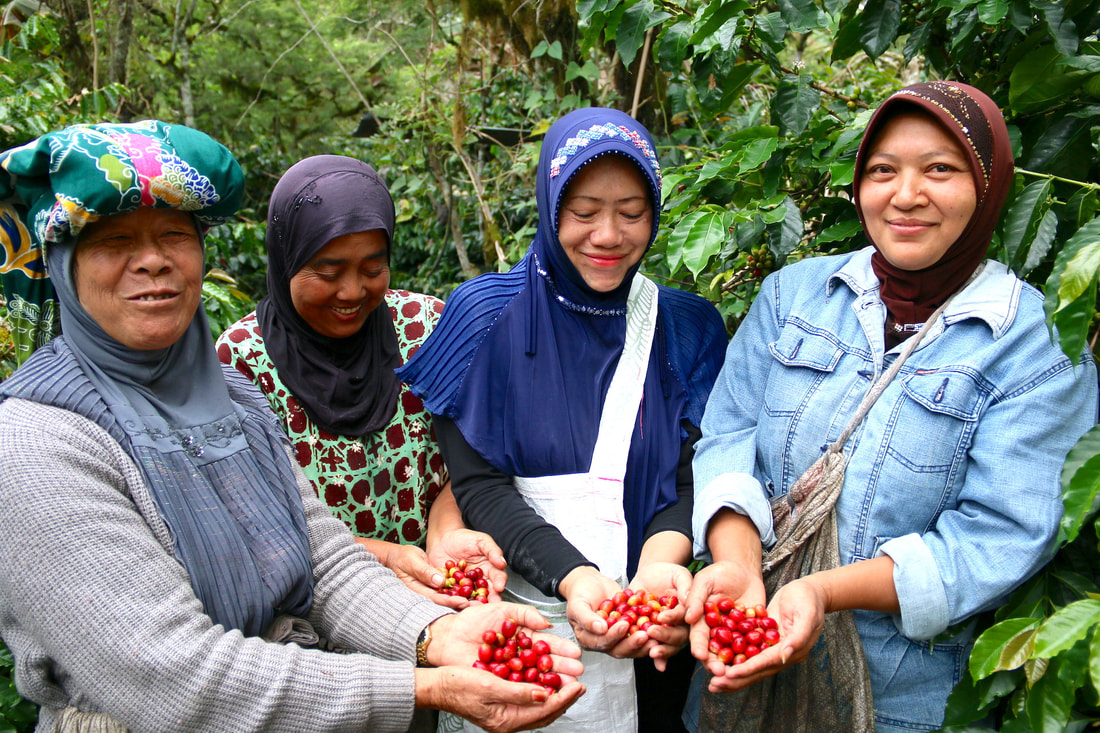Drying, in our opinion, is where the key to quality in this process lies. In addition to the importance of selective harvesting as in any coffee production process, drying is fundamental in the Giling Basah process. As in many origins, coffee is dried on the ground by the side of the road, and coffee has the ability to absorb volatile components from the environment, such as humidity, odours or dust. Hence, some coffees are said to taste earthy or have earthy notes. This risk is increased in Sumatra because the coffee dries without the parchment, a protective layer of the coffee. But as local producers have been motivated to produce better coffees due to the prices they receive, this leads to the coffees being dried in suitable locations and protected from any external influences.
|
Fear of the unknown is something we have all experienced. The exotic, the different, the uncertain, is something we immediately reject, and this is nothing more than a survival reflex developed over millions of years of evolution. Throughout human history, we have been able to survive various threats because we have instinctively rejected the unknown, opting instead for the safe, the familiar and the certain. But on many occasions the unknown can also save your life, bring you wellbeing and illuminate a wonderful path that you did not know before. Sumatra for us has been one of those experiences, one of those coffees that does not leave you indifferent, one of those that you either love or hate. For us it was love at first sight. Sumatra is the largest island in Indonesia. It is an exotic and mysterious island, with a history that not many know about, making it perhaps an obscure place, but the reality is that Sumatra is a majestic island, with abundant nature and friendly people, like few others in the world. And while most of its coffee production is concentrated in the far south of the island and is exclusively Robusta coffee (perhaps hence its bad coffee reputation), the north of the island produces only arabica coffee and in recent years the focus on quality has been growing. In the world of speciality coffee its reputation has been changing for the better, and in some regions like Gayo, we happily see more and better coffees year after year. But there is one question we often receive: is it possible to produce high-end coffees with the Giling Basah process? The answer is a resounding YES! The name given to the process translates as wet hulling in the Bahasa language. The coffee is initially handled in exactly the same way as washed coffee is processed anywhere in the world, and the difference is that the parchment is hulled when the coffee is at a moisture content of 45-50%. In all other origins this is done at 11-12%. It has also been called semi-washing, which we profoundly disagree with, as the coffee is fully washed. The only thing is that the parchment is removed earlier from the green coffee in order to speed up the drying process.
Drying, in our opinion, is where the key to quality in this process lies. In addition to the importance of selective harvesting as in any coffee production process, drying is fundamental in the Giling Basah process. As in many origins, coffee is dried on the ground by the side of the road, and coffee has the ability to absorb volatile components from the environment, such as humidity, odours or dust. Hence, some coffees are said to taste earthy or have earthy notes. This risk is increased in Sumatra because the coffee dries without the parchment, a protective layer of the coffee. But as local producers have been motivated to produce better coffees due to the prices they receive, this leads to the coffees being dried in suitable locations and protected from any external influences.
0 Comments
Leave a Reply. |
Archives
July 2024
Categories
All
|



 RSS Feed
RSS Feed